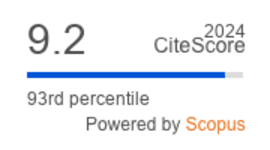A review on the characteristics, taxanomy and prevalence of Listeria monocytogenes
DOI:
https://doi.org/10.36877/pmmb.a0000007Abstract
Listeria monocytogenes is a Gram-positive bacterium that is commonly isolated from food sources. This opportunistic human pathogen is the causative agent of listeriosis, an illness that mainly effects immunocompromised, the elderly, infants, and pregnant women. Ever since its detection, listeriosis cases has been very prevalent and commonly associated with food sources such as dairy products, ready-to-eat food, and poultry. The prevalence of listeriosis is of public health concern and proper management is required to control this illness from spreading widely. Thus, this review seeks to elucidate a better understanding on the characteristics, taxanomy, prevalence and their associated food sources, as well as management methods in order to devise proper control actions to reduce listeriosis incidence worldwide.
Downloads
Published
How to Cite
Issue
Section
License
Author(s) shall retain the copyright of their work and grant the Journal/Publisher right for the first publication with the work simultaneously licensed under:
Creative Commons Attribution-NonCommercial 4.0 International (CC BY-NC 4.0). This license allows for the copying, distribution and transmission of the work, provided the correct attribution of the original creator is stated. Adaptation and remixing are also permitted.

This broad license intends to facilitate free access to, as well as the unrestricted reuse of, original works of all types for non-commercial purposes.
The author(s) permits HH Publisher to publish this article that has not been submitted elsewhere.



.png)

.jpg)
